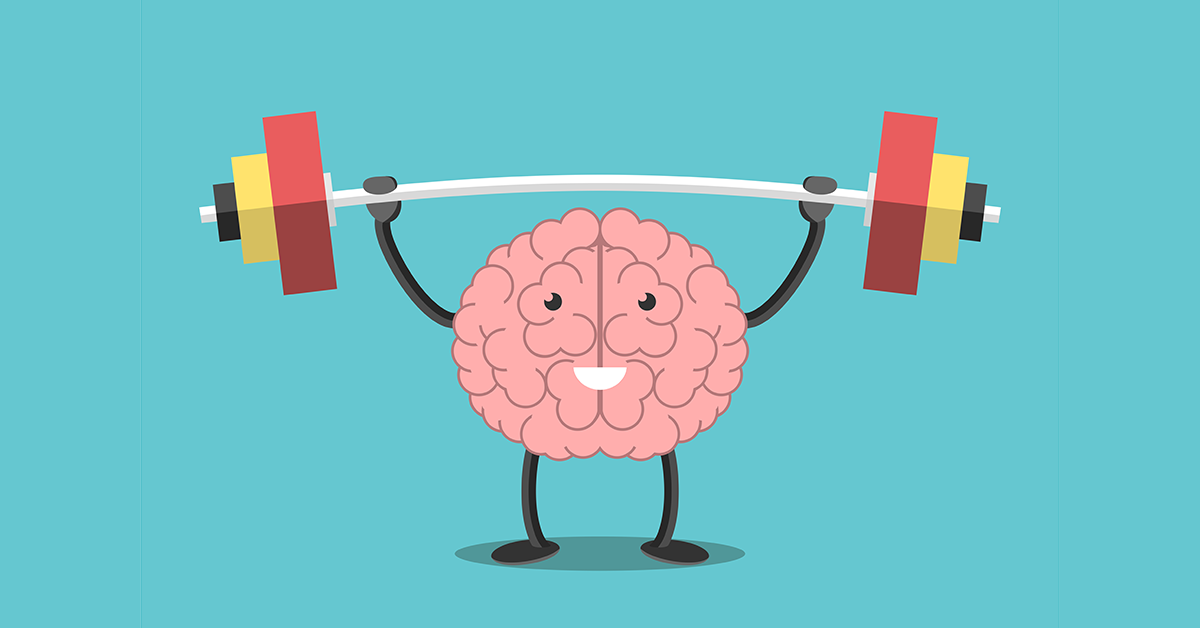As more and more people become aware of the importance of gut health, the popularity of probiotics has grown significantly in recent years. Probiotics are live bacteria and yeasts that are beneficial for the gut and overall health. In this post, we will explore the top 7 benefits of probiotics for gut health. From improving digestion and boosting the immune system to reducing inflammation and preventing infections, probiotics offer a range of health benefits that can have a positive impact on your overall wellbeing. Whether you're struggling with digestive issues, looking to boost your immune system, or simply want to maintain good gut health, probiotics are a great natural solution. So, let's dive in and discover the many ways in which probiotics can improve your gut health and enhance your overall quality of life.
1, Improved Digestion.
Probiotics are beneficial bacteria that play a crucial role in improving digestion. By promoting the growth of beneficial bacteria in the gut, probiotics help break down food more efficiently and reduce the risk of digestive problems such as bloating, gas, and constipation. This is because the gut is home to trillions of bacteria, and a healthy balance of beneficial bacteria is crucial for optimal digestive function. However, factors such as a poor diet, stress, and the use of antibiotics can disrupt this delicate balance, leading to digestive problems.
Fortunately, probiotics can help restore the natural balance of bacteria in the gut. They do this by introducing beneficial bacteria that help promote a healthy gut microbiome, which is essential for optimal digestion. By breaking down food more efficiently, probiotics can reduce symptoms such as bloating, gas, and constipation, making digestion more comfortable and efficient.
It's important to note that not all probiotics are created equal, and different strains of bacteria may have different effects on the gut. For example, some strains may be more effective at reducing bloating, while others may be more effective at reducing constipation. It's also important to choose high-quality probiotic supplements or foods that are rich in probiotics to ensure that you are getting the right strains in the right amounts.
In summary, probiotics can improve digestion by promoting a healthy balance of bacteria in the gut, which can help break down food more efficiently and reduce symptoms such as bloating, gas, and constipation. If you're looking to improve your digestive health, incorporating probiotics into your diet may be a great place to start!.
2, Boosts Immune System.
One of the key benefits of probiotics is their ability to boost the immune system. The gut is home to a significant portion of the body's immune cells, making it an important line of defense against harmful bacteria and viruses. Probiotics can help support the immune system by increasing the production of antibodies, which are proteins that help identify and fight off harmful pathogens.
Studies have shown that probiotics can increase the production of antibodies, particularly immunoglobulin A (IgA), which is found in high concentrations in the gut. By increasing IgA levels, probiotics can help create a barrier against harmful bacteria and viruses, reducing the risk of infections.
Probiotics may also have other immune-boosting effects, such as increasing the activity of immune cells and reducing inflammation, which can further enhance the immune system's ability to fight off infections.
It's important to note that while probiotics can be beneficial for immune health, they should not be relied upon as a sole means of boosting immunity. A healthy diet, regular exercise, stress management, and good sleep hygiene are all important factors in supporting a strong and healthy immune system.
In summary, probiotics can help boost the immune system by increasing the production of antibodies, particularly IgA, which helps create a barrier against harmful bacteria and viruses. By incorporating probiotics into a healthy lifestyle, one can support the immune system and enhance overall health and wellbeing.
3, Reduces Inflammation.
Inflammation is a natural response by the body to protect against infection or injury, but when it becomes chronic, it can contribute to a variety of health issues. Chronic inflammation in the gut has been linked to conditions such as irritable bowel syndrome (IBS), inflammatory bowel disease (IBD), and even some types of cancer.
Fortunately, probiotics have been shown to have anti-inflammatory effects and can help reduce inflammation in the gut. This is because certain strains of probiotics can help modulate the immune system, which plays a critical role in regulating inflammation.
In addition, probiotics can also help reduce inflammation by promoting the growth of beneficial bacteria in the gut. When there is a healthy balance of beneficial bacteria in the gut, harmful bacteria are less likely to proliferate, reducing the risk of inflammation.
Research has shown that certain strains of probiotics, such as Bifidobacterium and Lactobacillus, can be particularly effective at reducing inflammation in the gut. In fact, some studies have even suggested that probiotics may be as effective as some anti-inflammatory drugs in reducing inflammation.
In summary, probiotics have anti-inflammatory effects and can help reduce inflammation in the gut. By promoting a healthy balance of bacteria and modulating the immune system, probiotics can play an important role in reducing the risk of chronic inflammation and associated health issues.
4, Prevents Infections.
Probiotics can play an important role in preventing infections by creating a barrier against harmful bacteria and promoting the growth of beneficial bacteria in the gut.
The gut is home to trillions of bacteria, and maintaining a healthy balance of beneficial bacteria is essential for optimal digestive and immune function. When harmful bacteria are able to proliferate in the gut, they can cause a range of health issues, including infections.
Probiotics can help prevent infections by creating a barrier against harmful bacteria. This is because certain strains of probiotics can help strengthen the intestinal barrier, which is a protective layer of cells that lines the gut. A strong intestinal barrier can prevent harmful bacteria from entering the bloodstream, reducing the risk of infections.
In addition, probiotics can also help prevent infections by promoting the growth of beneficial bacteria in the gut. When there is a healthy balance of beneficial bacteria in the gut, harmful bacteria are less likely to proliferate, reducing the risk of infections.
Research has shown that probiotics can be particularly effective at preventing infections such as urinary tract infections (UTIs) and respiratory infections. In fact, some studies have even suggested that probiotics may be as effective as some antibiotics in preventing certain types of infections.
In summary, probiotics can help prevent infections by creating a barrier against harmful bacteria and promoting the growth of beneficial bacteria in the gut. By maintaining a healthy balance of bacteria in the gut, probiotics can play an important role in reducing the risk of infections and promoting overall health and wellbeing.
5, Helps with Weight Management.
Probiotics can play a role in weight management by promoting healthy digestion and reducing inflammation, which can lead to improved metabolism and weight loss.
A healthy balance of bacteria in the gut is essential for optimal digestion and absorption of nutrients. When there is an imbalance of bacteria in the gut, it can lead to digestive issues, including bloating and constipation. Probiotics can help promote healthy digestion by restoring the balance of beneficial bacteria in the gut, which can improve nutrient absorption and reduce symptoms of digestive discomfort.
In addition, chronic inflammation in the body has been linked to weight gain and obesity. By reducing inflammation in the gut, probiotics can help improve metabolism and promote weight loss. This is because inflammation can interfere with insulin sensitivity, which is important for regulating blood sugar levels and metabolism.
Research has shown that certain strains of probiotics, such as Lactobacillus and Bifidobacterium, can be particularly effective at promoting weight loss. In fact, some studies have suggested that probiotics may be able to reduce body weight and body fat percentage in people who are overweight or obese.
It's important to note that while probiotics can be helpful for weight management, they should be used in conjunction with a healthy diet and regular exercise. Probiotics alone are not a magic solution for weight loss.
In summary, probiotics can help with weight management by promoting healthy digestion, reducing inflammation, and improving metabolism. By restoring the balance of bacteria in the gut and reducing inflammation, probiotics can play an important role in promoting overall health and wellbeing.
6, Improves Mental Health.
Probiotics can have a positive impact on mental health by reducing symptoms of anxiety and depression.
The gut-brain axis is the bidirectional communication system that exists between the gut and the brain. It is well-established that the gut microbiome can influence brain function and mental health by producing neurotransmitters and metabolites that impact brain activity.
Research has shown that the gut microbiome can play a role in regulating mood and behavior. In fact, some studies have suggested that an imbalance of bacteria in the gut may be linked to an increased risk of anxiety and depression.
Probiotics can help improve mental health by restoring the balance of bacteria in the gut and reducing inflammation. This is because certain strains of probiotics have been shown to produce neurotransmitters like serotonin and GABA, which are important for regulating mood and reducing anxiety.
In addition, probiotics can also help reduce inflammation in the body, which has been linked to an increased risk of depression. By reducing inflammation, probiotics can help improve brain function and reduce symptoms of anxiety and depression.
Research has shown that certain strains of probiotics, such as Lactobacillus and Bifidobacterium, may be particularly effective at improving mental health. In fact, some studies have suggested that probiotics may be as effective as some antidepressant medications in reducing symptoms of depression.
In summary, probiotics can have a positive impact on mental health by restoring the balance of bacteria in the gut and reducing inflammation. By producing neurotransmitters and metabolites that impact brain function, probiotics can help regulate mood and reduce symptoms of anxiety and depression.
7, Enhances Nutrient Absorption.
Probiotics can enhance nutrient absorption by promoting the breakdown of food and the production of important vitamins and minerals in the gut.
The gut microbiome plays an important role in nutrient absorption. When there is an imbalance of bacteria in the gut, it can lead to malabsorption of nutrients and deficiencies in essential vitamins and minerals.
Probiotics can help promote nutrient absorption by breaking down food more efficiently and improving the production of certain vitamins and minerals in the gut. For example, probiotics can help break down lactose in dairy products, which can be particularly beneficial for individuals who are lactose intolerant.
In addition, certain strains of probiotics, such as Lactobacillus and Bifidobacterium, can produce important vitamins like B12 and K2, which are essential for overall health and wellbeing. These vitamins play a role in bone health, blood clotting, and energy metabolism.
Research has also suggested that probiotics may help improve the absorption of other important nutrients like iron, calcium, and zinc. This is particularly important for individuals who may be at risk of nutrient deficiencies, such as pregnant women, older adults, and individuals with certain medical conditions.
In summary, probiotics can enhance nutrient absorption by promoting the breakdown of food and the production of important vitamins and minerals in the gut. By restoring the balance of bacteria in the gut and promoting healthy digestion, probiotics can play an important role in maintaining overall health and wellbeing.
In conclusion, probiotics are a simple and effective way to improve your gut health and overall wellbeing. With their ability to improve digestion, boost the immune system, reduce inflammation, prevent infections, help with weight management, improve mental health, and enhance nutrient absorption, probiotics offer a wide range of health benefits that should not be overlooked. Whether you choose to incorporate probiotics into your diet through supplements, fermented foods, or probiotic-rich beverages, taking care of your gut health is an important step towards a healthier, happier you. So, if you're looking to improve your gut health, start incorporating probiotics into your daily routine today and experience the many benefits they have to offer.







Comments
Post a Comment